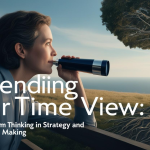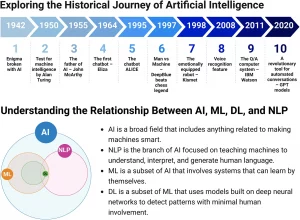We live in an age of glittering promises, a constant echo of happiness packaged and available at the click of a button. Bright screens capture our attention, an uninterrupted flow of stimuli envelops us, promising entertainment and oblivion. But in this whirlwind of apparent joy, there is a subtle restlessness, a feeling of emptiness that no notification can fill. We feel constantly on the run, chased by shadows that we cannot define, and we take refuge in perpetual entertainment, a sort of light anesthetic that prevents us from really feeling.
It is an escape as old as humanity, a desire to escape the weight of thoughts, the silent remorse, the responsibilities that await us. Today, however, the escape routes have become more insidious, more effective in keeping us prisoner. Entertainment is everywhere, an invisible web that envelops us and distracts us from the most important dialogue: the one with ourselves. We find ourselves trapped in an eternal present of superficial laughter and ephemeral pleasures, losing sight of the seriousness and solemnity that some life experiences require.
This constant search for fun at all costs leads us to avoid pain, defeats and tragedies. But pain, far from being an enemy to be defeated, is a precious messenger, a signal that tells us something important about ourselves, about our path. Running away from pain means ignoring this signal, suffocating a vital part of ourselves. Understanding our suffering, communicating with it, is a main path to self-knowledge, to discover our fragilities and our inner strength.
We live in an era of overabundance, an orgy of stimuli that prevents us from perceiving the whisper of our inner voice. We are like the protagonists of a prophetic dystopian novel, trapped in “voluntary servitude”, where we give up the tiring but rewarding understanding of ourselves in exchange for immediate and superficial pleasure. Social media, endless entertainment, become our modern “soma”, a pill that stuns us and distances us from the truth, from the complexity of our being.
The deep root of this escape often lies in the desire to remain anchored to an illusory innocence, avoiding the fatigue and responsibility of maturation. We cling to childish behaviors, indulged by a consumerist society that treats us like eternal capricious children. But true freedom is not found in escapism, but in embracing our adulthood, in taking charge of our choices, our successes and our failures. Life inevitably presents us with painful “unexpected events”, events that force us to grow. Those who flee from these opportunities risk remaining immature, unable to face life’s challenges with the strength and wisdom necessary to build healthy relationships, fulfilling work and a full existence.
Authentic and lasting happiness is not the absence of pain or the constant search for fun, but the ability to give meaning to our difficulties, to our entire existence. Giving meaning implies weaving a “conceptual network”, narrating the unitary story of our life, integrating joys and sorrows, lights and shadows. It means acting in coherence with what we discover about ourselves, with our deepest values. It is a process of deep interior listening, a constant dialogue with our experiences, even the negative ones.
Even death, often feared and denied, is an integral part of this process of searching for meaning. Meditating on our mortality, accepting its inescapable reality, paradoxically pushes us to live more fully, with greater awareness and courage. This is not a macabre exercise, but a profound reflection that reminds us of the preciousness of the time we are granted. Talking about death with loved ones, facing this taboo, can strengthen bonds and enrich our relationships. Living fully also means considering the “trace” we will leave, the “ghost” we will be for others, striving to become a “good ghost” through authentic actions in line with our true nature.
In a hyper-stimulated world, carving out spaces for silence and reflection becomes a revolutionary act. Reading, an immersion in the words of others, is an inner journey, an encounter with “chests full of ghosts”, voices that resonate through time and offer us new perspectives on ourselves and the world. It is necessary to resist haste, the demand for immediate answers, and give ourselves the necessary time for solutions and deep understandings to emerge slowly, like a seed that germinates in the fertile soil of patience.
Dying well, ultimately, means having lived fully, without leaving out anything that life has offered us, also accepting challenges and pain. Being in the world is already an immense fortune, an incredible lottery. Wasting portions of our existence, running away from difficulties, is a senseless act towards this gift. Dying in the moment of greatest happiness, as an ancient wise man suggested, is not so much a wish as an invitation to find authentic joy in the depths of our being and not to separate it from the awareness of our finiteness.
For those who feel lost in this labyrinth of stimuli and promises, the most precious advice is to give voice to what is stirring inside, without fear of other people’s judgement. Seeking or creating contexts in which you can express your passions, your ideas, is an act of courage that can change a life. Don’t be afraid to talk about what moves you, what you are passionate about, even if it seems strange or out of fashion. Dissent, sometimes, is just an act of selection, a way to find those who vibrate at the same frequency as you.
The journey to self-discovery is a tortuous path, made up of moments of light and shadow, of joys and pains. But it is a necessary journey to give a profound meaning to our existence, to find that authentic happiness that does not depend on external circumstances, but on our ability to accept our fragility, to face our fears and to embrace the fullness of our humanity. Don’t fear the shadows, because that’s where the most intense light can emerge. Be brave, be authentic, be the good ghosts of tomorrow.









